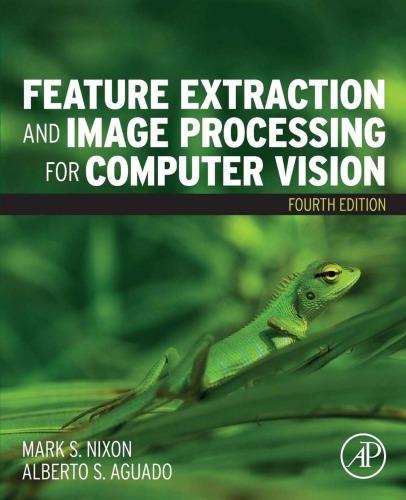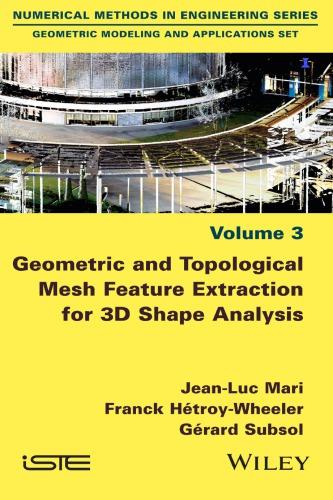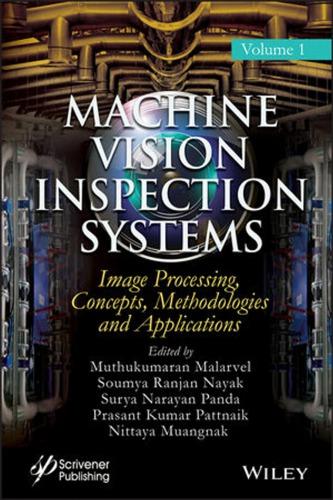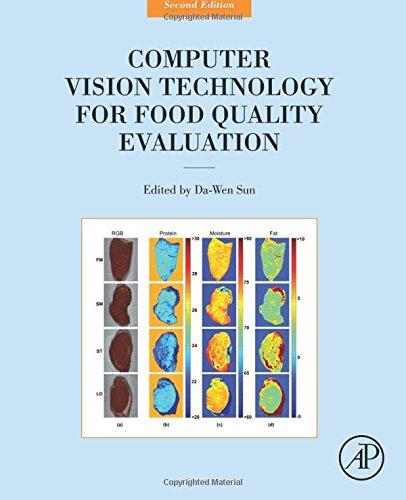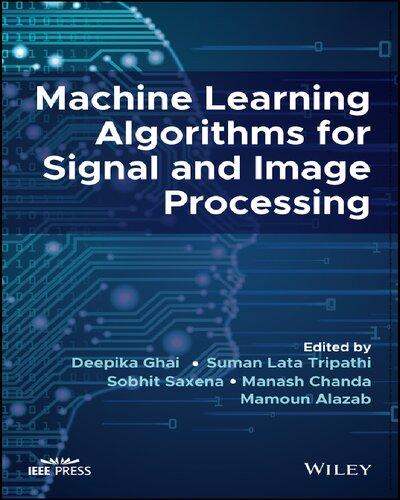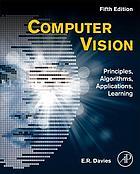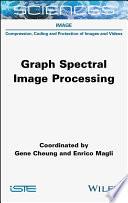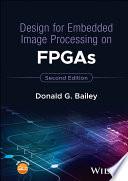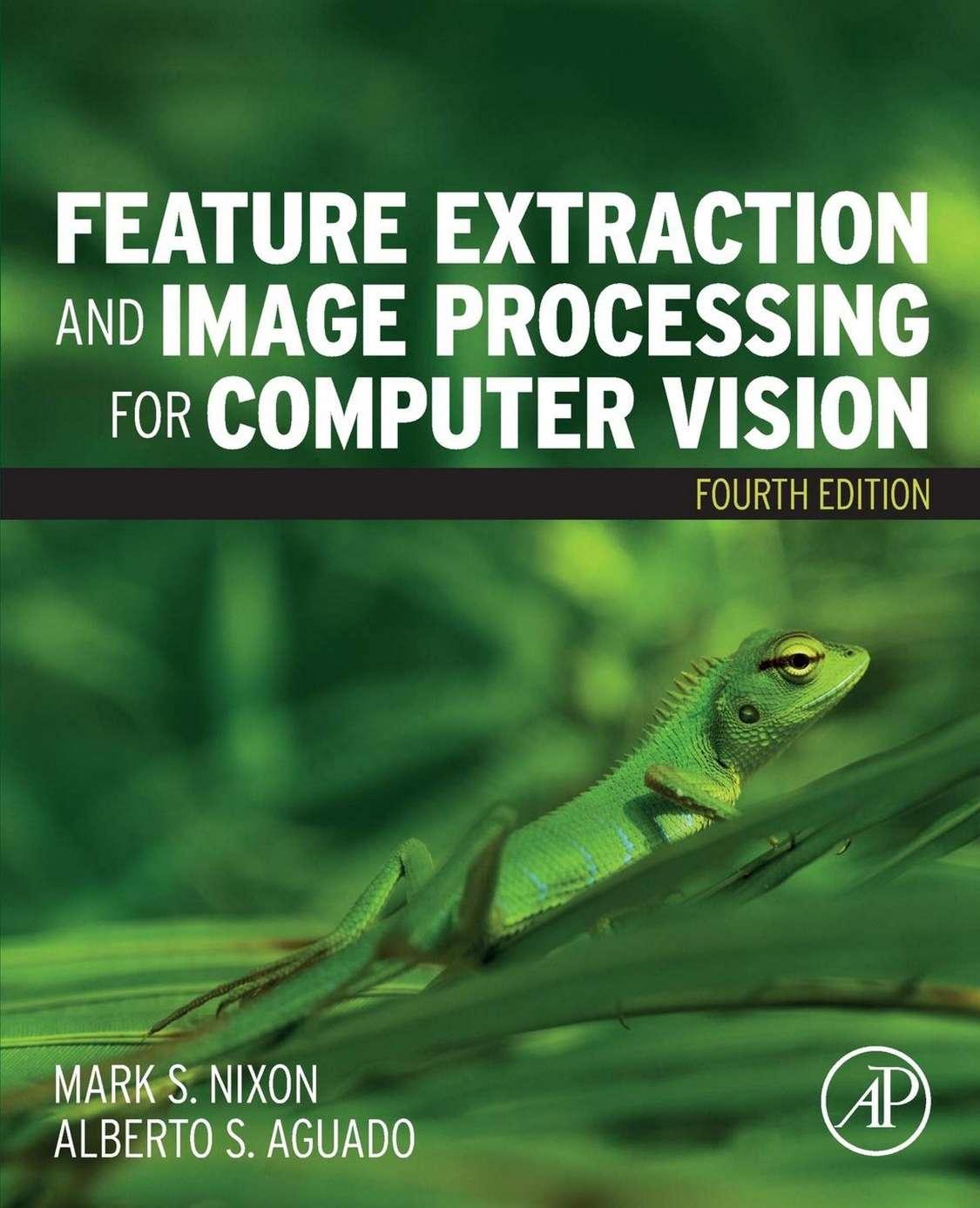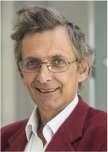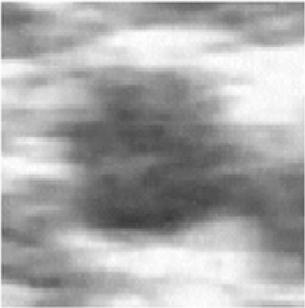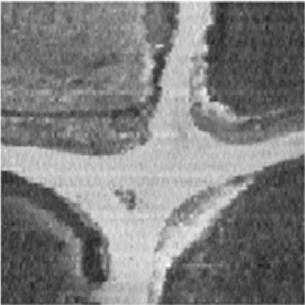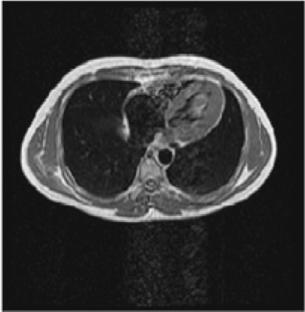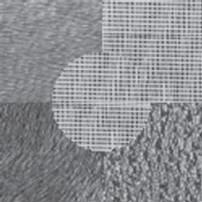Preface
Whatisnewinthefourthedition?
Societymakesincreasinguseofimageprocessingandcomputervision:manufacturingsystems,medicalimageanalysis,roboticcars,andbiometricsaresplendidexamplesofwhere societybenefitsfromthistechnology.Toachievethistherehasbeen,andcontinuestobe, muchresearchanddevelopment.Theresearchdevelopsintobooks,andsothebooksneed updating.Wehavealwaysbeeninterestedtonotethatourbookcontainsstockimageprocessingandcomputervisiontechniqueswhichareyettobefoundinotherregulartextbooks (OK,somearetobefoundinspecialistbooks,thoughtheserarelyincludemuchtutorial material).Thiswastrueofthepreviouseditionsandcertainlyoccurshere.
AbigchangeintheFourthEditionisthemovetoPythonandMatlab,toreplacethe earlieruseofMathcadandMatlab.Wehavereorderedmuchofthematerialandaddednew materialwhereappropriate.Therecontinuetobemanynewtechniquesforfeatureextraction anddescription.Therehasbeenquitearevolutioninimageprocessingandcomputervision whilsttheFourthEditionwasinprocess,namelytheemergenceofdeeplearning.Thisis notedthroughout,andanewchapterisaddedonthistopic.Aswellasdeeplearning,other additionsincludefilteringtechniques(non-localmeansandbilateralfiltering),keypoint detectors,saliencyoperators,opticalflowtechniques,featuredescriptions(Krawtchouk moments),region-basedanalysis(watershed,MSERandsuperpixels),space timeinterest pointsandmoredistancemeasures(histogramintersection,Chi2 (c2)andtheearthmover’s distance).Wedonotincludestatisticalpatternrecognitionapproaches,andforthatitisbest tolookelsewhere(thisbookwouldotherwisebeenormous).Ourinteresthereisinthe implementationandusageoffeatureextraction.Assuch,thisbook IOHO remainsthe mostup-to-datetextinfeatureextractionandimageprocessingincomputervision.
Astherearefoureditionsnow,itisappropriatetohavearecaponthepreviousadditions.Eacheditioncorrectedthepreviousproductionerrors,someofwhichwemustconfess areourown,andincludedmoretutorialmaterialwhereappropriate.(Ifyoufindanerror, thereisapromiseoffreebeerinthenextsection.)ThecompletelynewmaterialintheThird Editionwasonmovingobjectdetection,trackinganddescription.Wealsoextendedthebook tousecolour,andmoremoderntechniquesforobjectextractionanddescriptionespecially thosecapitalisingonwaveletsandonscalespace.TheSecondEditionupdatedandextended withnewmaterialonsmoothing,geometricactivecontours,keypointdetectionandmoments.Somematerialhasbeenfilteredoutateachstagetoretainconsistency.Ourapologies ifyourfavourite,oryourown,techniquehasbeenomitted.Featureextractionandimage processingisaslargeasitisenjoyable.
Whydidwewritethisbook?
Wealwaysexpectedtobeasked:‘whyonearthwriteanewbookoncomputervision?’,andwe havebeen.Fairquestion:therearealreadymanygoodbooksoncomputervisionalreadyout inthebookshops,asyouwillfindreferencedlater,sowhyaddtothem.Partoftheansweris thatanytextbookisasnapshotofmaterialthatexistspriortoit.Computervision,theartof processingimagesstoredwithinacomputer,hasseenaconsiderableamountofresearchby
highlyqualifiedpeople,andthevolumeofresearchwouldappeareventohaveincreasedin recentyears.Thatmeansmanynewtechniqueshavebeendeveloped,andmanyofthemore recentapproacheshaveyettomigratetotextbooks.Itisnotjustthenewresearch:partofthe speedyadvanceincomputervisiontechniquehasleftsomeareascoveredonlyinscanty detail.Bythenatureofresearch,onecannotpublishmaterialontechniquethatisseenmore tofillhistoricalgaps,ratherthantoadvanceknowledge.Thisisagainwhereanewtextcan contribute.
Finally,thetechnologyitselfcontinuestoadvance.Thismeansthatthereisnew hardware,newprogramminglanguagesandnewprogrammingenvironments.Inparticular forcomputervision,theadvanceoftechnologymeansthatcomputingpowerandmemory arenowrelativelycheap.Itiscertainlyconsiderablycheaperthanwhencomputervisionwas startingasaresearchfield.Oneoftheauthorsherenotesthathisphonehasmoreconsiderablymorememory,isfaster,hasbiggerdiskspaceandbettergraphicsthanthecomputer thatservedtheentireuniversityofhisstudentdays.Andheisnotthatold!Oneofthemore advantageousrecentchangesbroughtbyprogresshasbeenthedevelopmentofmathematicalprogrammingsystems.Theseallowustoconcentrateonmathematicaltechniqueitself, ratherthanonimplementationdetail.Thereareseveralsophisticatedflavoursofwhich Matlab,oneofthechosenvehicleshere,is(arguably)themostpopular.Wehavebeenusing thesetechniquesinresearchandinteaching,theyhavebeenofconsiderablebenefitthere.In research,theyhelpustodeveloptechniquefasterandtoevaluateitsfinalimplementation. Forteaching,thepowerofamodernlaptopandamathematicalsystemcombinestoshow students,inlecturesandinstudy,notonlyhowtechniquesareimplementedbutalsohow andwhytheyworkwithanexplicitrelationtoconventionalteachingmaterial.
Wewrotethisbookforthesereasons.Thereisahostofmaterialwecouldhaveincluded butchosetoomit;thetaxonomyandstructureweusetoexposethesubjectisofourown construction.Byvirtueoftheenormousbreadthofthesubjectofimageprocessingand computervision,werestrictedthefocustofeatureextractionandimageprocessingin computervisionforthishasnotonlybeenthefocusofourresearch,anditisalsowherethe attentionofestablishedtextbooks,withsomeexceptions,canberathersparse.Itis,however, oneoftheprimetargetsofappliedcomputervision,sowouldbenefitfrombetterattention. Wehaveaimedtoclarifysomeofitsoriginsanddevelopment,whilstalsoexposingimplementationusingmathematicalsystems.Assuch,wehavewrittenthistextwithouroriginal aimsinmindandmaintainedtheapproachthroughthelatereditions.
Thebookanditssupport
Eachchapterofthisbookpresentsapackageofinformationconcerningfeatureextractionin imageprocessingandcomputervision.Eachpackageisdevelopedfromitsoriginsandlater referencedtomaterialthatismorerecent.Naturally,thereisoftentheoreticaldevelopment priortoimplementation.Weprovideworkingimplementationsofmostofthemajortechniqueswedescribe,andappliedthemtoprocessaselectionofimagery.Thoughthefocusof ourownworkhasbeenmoreinanalysingmedicalimageryorinbiometrics(thescienceof recognisingpeoplebybehaviouralorphysiologicalcharacteristics,likefacerecognition),the techniquesaregeneralandcanmigratetootherapplicationdomains.
Youwillfindahostoffurthersupportinginformationatthebook’swebsite: https:// www.southampton.ac.uk/wmsn/book/.First,youwillfindtheMatlabandPythonimplementationsthatsupportthetextsothatyoucanstudythetechniquesdescribedherein.The websitewillbekeptup-to-dateaspossible,foritalsocontainslinkstoothermaterialsuchas
websitesdevotedtotechniquesandtoapplications,aswellastoavailablesoftwareandonlineliterature.Finally,anyerratawillbereportedthere.Itisourregretandourresponsibility thatthesewillexist,andourinducementfortheirreportingconcernsapintofbeer.Ifyou findanerrorthatwedonotknowabout(nottyposlikespelling,grammarandlayout)then usethemailtoonthewebsiteandweshallsendyouapintofgoodEnglishbeer,free!
Thereisacertainamountofmathematicsinthisbook.Thetargetaudienceisthirdor fourthyearstudentsinBSc/BEng/MEng/MScinelectricalorelectronicengineering,software engineeringandcomputerscience,orinmathematicsorphysics,andthisisthelevelof mathematicalanalysishere.Computervisioncanbethoughtofasabranchofapplied mathematics,thoughthisdoesnotreallyapplytosomeareaswithinitsremit,andcertainly appliestothematerialherein.Themathematicsessentiallyconcernsmainlycalculusand geometrythoughsomeofitisrathermoredetailedthantheconstraintsofaconventional lecturecoursemightallow.Certainly,notallthematerialhereiscoveredindetailinundergraduatecoursesatSouthampton.
Thebookstartswithanoverviewofcomputervisionhardware,softwareandestablished material,withreferencetothemostsophisticatedvisionsystemyet‘developed’:thehuman visionsystem.Thoughtheprecisedetailsofthenatureofprocessingthatallowsustosee haveyettobedetermined,thereisaconsiderablerangeofhardwareandsoftwarethatallows ustogiveacomputersystemthecapabilitytoacquire,processandreasonwithimagery,the functionof‘sight’.Thefirstchapteralsoprovidesacomprehensivebibliographyofmaterial youcanfindonthesubject,notonlyincludingtextbooks,andalsoavailablesoftwareand othermaterial.Asthiswillnodoubtbesubjecttochange,itmightwellbeworthconsulting thewebsiteformoreup-to-dateinformation.Thepreferencesforjournalreferencesarethose whicharelikelytobefoundinlocaluniversitylibrariesorontheweb, IEEETransactions in particular.Theseareoftensubscribedtoastheyarerelativelylowcostandareoftenofvery highquality.
Thenextchapterconcernsthebasicsofsignalprocessingtheoryforuseincomputer vision.ItintroducestheFouriertransformthatallowsyoutolookatasignalinanewway,in termsofitsfrequencycontent.Italsoallowsustoworkouttheminimumsizeofapictureto conserveinformation,toanalysethecontentintermsoffrequencyandevenhelpstospeed upsomeofthelatervisionalgorithms.Itdoesinvolveafewequations,butitisanewwayof lookingatdataandatsignalsandprovestobearewardingtopicofstudyinitsownright.It extendstowavelets,whichareapopularanalysistoolinimageprocessing.
Wethenstarttolookatbasicimageprocessingtechniques,whereimagepointsare mappedintoanewvaluefirstbyconsideringasinglepointinanoriginalimageandthenby consideringgroupsofpoints.Notonlydoweseecommonoperationstomakeapicture’s appearancebetter,especiallyforhumanvision,butalsoseehowtoreducetheeffectsof differenttypesofcommonlyencounteredimagenoise.Weshallseesomeofthemodernways toremovenoiseandthuscleanimages,andweshalllookattechniqueswhichprocessan imageusingnotionsofshape,ratherthanmappingprocesses.
Thefollowingchapterconcernslow-levelfeaturesthatarethetechniquesthatdescribe thecontentofanimage,atthelevelofawholeimageratherthanindistinctregionsofit.One ofthemostimportantprocessesweshallmeetiscallededgedetection.Essentially,thisreducesanimagetoaformofacaricaturist’ssketch,thoughwithoutacaricaturist’sexaggerations.Themajortechniquesarepresentedindetail,togetherwithdescriptionsoftheir implementation.Otherimagepropertieswecanderiveincludemeasuresofcurvature,which developedintomodernmethodsoffeatureextraction,andmeasuresofmovement.The newertechniquesarekeypointsthatlocaliseimageinformationandfeaturepointdetection inparticular.Thereareotherimagepropertiesthatcanalsobeusedforlow-levelfeature
extractionsuchasphasecongruencyandsaliency.Together,manytechniquescanbeusedto describethecontentofanimage.
Theedges,thekeypoints,thecurvatureorthemotionneedtobegroupedinsomeway sothatwecanfindshapesinanimage.Usingbasicthresholdingrarelysufficesforshape extraction.Oneoftheapproachesistogrouplow-levelfeaturestofindanobject inaway thisisobjectextractionwithoutshape.Anotherapproachtoshapeextractionconcerns analysingthematchoflow-levelinformationtoaknowntemplateofatargetshape.Asthis canbecomputationallyverycumbersome,wethenprogresstoatechniquethatimproves computationalperformance,whilstmaintaininganoptimalperformance.Thetechniqueis knownastheHoughtransform,andithaslongbeenapopulartargetforresearchersin computervisionwhohavesoughttoclarifyitsbasis,improveitsspeedandincreaseitsaccuracyandrobustness.Essentially,bytheHoughtransformweestimatetheparametersthat governashape’sappearance,wheretheshapesrangefromlinestoellipsesandevento unknownshapes.
Someapplicationsofshapeextractionrequiredeterminationofrathermorethanthe parametersthatcontrolappearance,andrequiretobeabletodeformorflextomatchthe imagetemplate.Forthisreason,thechapteronshapeextractionbymatchingisfollowedby oneonflexibleshapeanalysis.Thisleadstointeractivesegmentationviasnakes(active contours).Thelatermaterialontheformulationbylevel-setmethodsbroughtnewpowerto deformableshapeextractiontechniques.Further,weshallseehowwecandescribeashape byitsskeletonthoughwithpracticaldifficultywhichcanbealleviatedbysymmetry(though thiscanbeslowtocompute)andalsohowglobalconstraintsconcerningthestatisticsofa shape’sappearancecanbeusedtoguidefinalextraction.
Uptothispoint,wehavenotconsideredtechniquesthatcanbeusedtodescribethe shapefoundinanimage.Weshallfindthatthetwomajorapproachesconcerntechniques thatdescribeashape’sperimeterandthosethatdescribeitsarea.Someoftheperimeter descriptiontechniques,theFourierdescriptors,areevencouchedusingFouriertransform theorythatallowsanalysisoftheirfrequencycontent.Oneofthemajorapproachestoarea description,statisticalmoments,alsohasaformofaccesstofrequencycomponents,though itisofaverydifferentnaturetotheFourieranalysis.Wenowincludenewformulationsthat arephrasedindiscreteterms,ratherthanasapproximationstodiscrete.Oneadvantageis thatinsightintodescriptiveabilitycanbeachievedbyreconstructionwhichshouldgetback totheoriginalshape.
Wethenmoveontoregion-basedanalysis.Thisincludessomeclassiccomputervision approachesforsegmentationanddescription,especiallysuperpixelswhichareagrouping processreflectingstructureandreducedresolution.Thenwemovetotexturewhichdescribes patternswithnoknownanalyticaldescriptionandhasbeenthetargetofconsiderable researchincomputervisionandimageprocessing.
Muchcomputervision,forcomputationalreasons,concernsspatialimagesonly,and herewedescribespatiotemporaltechniquesdetectingandanalysingmovingobjectsfrom withinsequencesofimages.Movingobjectsaredetectedbyseparatingtheforegroundfrom thebackground,knownasbackgroundsubtraction.Havingseparatedthemovingcomponents,oneapproachisthentofollowortracktheobjectasitmoveswithinasequenceof imageframes.Themovingobjectcanbedescribedandrecognisedfromthetrackinginformationorbycollectingtogetherthesequenceofframestoderivemovingobjectdescriptions.
Weincludematerialthatisgermanetothetext,suchascameramodelsandco-ordinate geometryandonmethodsofcolourdescription.Theseareaimedtobeshortintroductions andaregermanetomuchofthematerialthroughoutbutnotneededdirectlytocoverit.
Wethendescribehowtolearnanddiscriminatebetweenobjectsandpatterns.Thereis alsointroductorymaterialonhowtoclassifythesepatternsagainstknowndata,withaselectionofthedistancemeasuresthatcanbeusedwithinthat,andthisisawindowonamuch largerarea,towhichappropriatepointersaregiven.Thisbookisnotaboutmachinelearning, andthereareplentyofexcellenttextsthatdescribethat.Wehavetoaddressdeeplearning, sinceitisacombinationoffeatureextractionandlearning.Takingthechallengedirectly,we addressdeeplearninganditsparticularrelationwithfeatureextractionandclassification. Thisisanewwayofprocessingimageswhichhasgreatpowerandcanbeveryfast.Weshow therelationshipbetweenthenewdeeplearningapproachesandclassicfeatureextraction techniques.
Anunderlyingpremisethroughoutthetextisthatthereisneverapanaceainengineering,itisinvariablyaboutcompromise.Thereismaterialnotcontainedinthebook,and someofthisandotherrelatedmaterialisreferencedthroughoutthetext,especiallyon-line material.
Inthisway,thetextcoversallmajorareasoffeatureextractionandimageprocessingin computervision.Thereisconsiderablymorematerialinthesubjectthanispresentedhere: forexample,thereisanenormousvolumeofmaterialin3Dcomputervisionandin2Dsignal processingwhichisonlyalludedtohere.Topicsthatarespecificallynotincludedare3D processing,watermarking,imagecoding,statisticalpatternrecognitionandmachine learning.Toincludeallthatwouldleadtoamonstrousbookthatnoonecouldafford,oreven pickup.Soweadmitwegiveasnapshot,andwehopemorethatitisconsideredtoopen anotherwindowonafascinatingandrewardingsubject.
Ingratitude
Weareimmenselygratefultotheinputofourcolleagues,inparticulartoProfSteveGunn,Dr JohnCarter,DrSasanMahmoodi,DrKateFarrahiandtoDrJonHare.Thefamilywhoputup withitareMariaEugeniaandCazandthenippers.Wearealsoverygratefultopastand presentresearchersincomputervisionattheVisionLearningandControl(VLC) researchgroupunder(orwhohavesurvived?)Mark’ssupervisionattheElectronicsand ComputerScience,UniversityofSouthampton.AswellasAlbertoandSteve,theseinclude DrHaniMuammar,ProfXiaoguangJia,ProfYanQiuChen,DrAdrianEvans,DrColinDavies, DrMarkJones,DrDavidCunado,DrJasonNash,DrPingHuang,DrLiangNg,DrDavid Benn,DrDouglasBradshaw,DrDavidHurley,DrJohnManslow,DrMikeGrant,BobRoddis, ProfAndrewTatem,DrKarlSharman,DrJamieShutler,DrJunChen,DrAndyTatem,Dr Chew-YeanYam,DrJamesHayfron-Acquah,DrYalinZheng,DrJeffFoster,DrPeter Myerscough,DrDavidWagg,DrAhmadAl-Mazeed,DrJang-HeeYoo,DrNickSpencer, DrStuartMowbray,DrStuartPrismall,ProfPeterGething,DrMikeJewell,DrDavidWagg, DrAlexBazin,HidayahRahmalan,DrXinLiu,DrImedBouchrika,DrBanafsheArbab-Zavar, DrDanThorpe,DrCemDirekoglu,DrSinaSamangooei,DrJohnBustard,D.RichardSeely, DrAlastairCummings,DrMuayedAl-Huseiny,DrMinaIbrahim,DrDarkoMatovski, DrGunawanAriyanto,DrSung-UkJung,DrRichardLowe,DrDanReid,DrGeorge Cushen,DrBenWaller,DrNickUdell,DrAnasAbuzaina,DrThamerAlathari,DrMusab Sahrim,DrAhReumOh,DrTimMatthews,DrEmadJaha,DrPeterForrest,DrJaimeLomeli, DrDanMartinho-Corbishley,DrBingchenGuo,DrJungSun,DrNawafAlmudhahka, DiMeng,MoneeraAlamnakani,andJohnEvans(forthegreathippophoto).Therehasbeen muchinputfromMark’spostdocstoo,omittingthosealreadymentioned,theseinclude DrHughLewis,DrRichardEvans,DrLeeMiddleton,DrGalinaVeres,DrBaofengGuo,
DrMichaelaGoffredoandDrWenshuZhang.Wearealsoverygratefultootherpast SouthamptonstudentsofBEngandMEngElectronicEngineering,MEngInformation Engineering,BEngandMEngComputerEngineering,MEngSoftwareEngineeringandBSc ComputerSciencewhohavepointedourearliermistakes(andenjoyedthebeer),havenoted areasforclarificationandinsomecasesvolunteeredsomeofthematerialherein.Beyond Southampton,weremaingratefultothereviewersandtothosewhohavewritteninandmade manyhelpfulsuggestions,andtoProfDanielCremers,DrTimorKadir,ProfTimCootes,Prof LarryDavis,DrPedroFelzenszwalb,ProfLucvanGool,ProfAaronBobick,ProfPhilTorr,Dr LongTran-Thanh,DrTiagodeFreitas,DrSethNixon,forobservationsonandimprovements tothetextand/orforpermissiontouseimages.NaturallyweareverygratefultotheElsevier editorialteamwhohelpedusreachthispoint,particularlyJoannaCollettandTimPitts,and especiallytoAnithaSivarajforherhelpwiththefinaltext.Toallofyou,ourverygrateful thanks.
Finalmessage
Weourselveshavealreadybenefitedmuchbywritingthisbook.Aswealreadyknow,previous studentshavealsobenefitedandcontributedtoitaswell.Itremainsourhopethatitdoes inspirepeopletojoininthisfascinatingandrewardingsubjectthathasprovedtobesucha sourceofpleasureandinspirationtoitsmanyworkers.
MarkS.Nixon ElectronicsandComputerScience,UniversityofSouthampton
AlbertoS.Aguado Foundry,London Nov2019 FeatureExtractionandImageProcessinginComputerVision
Introduction
1.1Overview
Thisiswherewestart,bylookingatthehumanvisualsystemtoinvestigatewhatis meantbyvision,howacomputercanbemadetosensepictorialdataandhowwecan processanimage.Theoverviewofthischapterisshownin Table1.1;youwillfinda similaroverviewatthestartofeachchapter.References/citationsarecollectedatthe endofeachchapter.
1.2Humanandcomputervision
Acomputervisionsystemprocessesimagesacquiredfromanelectroniccamera,which islikethehumanvisionsystemwherethebrainprocessesimagesderivedfromtheeye. Computervisionisarichandrewardingtopicforstudyandresearchforelectronic engineers,computerscientistsandmanyothers.Nowthatcamerasarecheapandwidely availableandcomputerpowerandmemoryarevast,computervisionisfoundinmany places.Therearenowmanyvisionsystemsinroutineindustrialuse:camerasinspect mechanicalpartstochecksize,foodisinspectedforqualityandimagesusedinastronomybenefitfromcomputervisiontechniques.Forensicstudiesandbiometrics (waystorecognisepeople)usingcomputervisionincludeautomaticfacerecognition
Table1.1 Overviewofchapter1.
MaintopicsSubtopicsMainpoints
Human vision system
Computer vision systems
Processing images
Howtheeyeworks,howvisualinformationisprocessed andhowitcanfail.
Howelectronicimagesareformed,howvideoisfedinto acomputerandhowwecanprocesstheinformation usingacomputer.
HowwecanprocessimagesusingthePythoncomputer languageandmathematicalpackages;introductionto PythonandtoMatlab.
LiteratureOthertextbooksandotherplacesto findinformationon imageprocessing,computervisionandfeatureextraction.
Sight, vision,lens,retina,image,colour, monochrome,processing,brain,visual illusions.
Pictureelements, pixels, video standard, camera technologies,pixeltechnology, performanceeffects,specialistcameras, videoconversion.
Programming andprocessingimages, visualisationofresults,availability,use.
Journals, textbooks,websitesandthis book’swebsite.
andrecognisingpeoplebythe‘texture’oftheiririses.Thesestudiesareparalleledby biologistsandpsychologistswhocontinuetostudyhowourhumanvisionsystemworks andhowweseeandrecogniseobjects(andpeople).
Aselectionof(computer)imagesisgivenin Fig.1.1,theseimagescompriseasetof pointsor pictureelements (usuallyconcatenatedto pixels)storedasanarrayofnumbers inacomputer.Torecognisefaces,basedonanimagesuchas Fig.1.1A,weneedtobe abletoanalyseconstituentshapes,suchastheshapeofthenose,theeyesandthe eyebrows,tomakesomemeasurementstodescribeandthenrecogniseaface. Fig.1.1B isanultrasoundimageofthecarotidartery(whichisnearthesideoftheneckand suppliesbloodtothebrainandtheface),takenasacross-sectionthroughit.Thetop regionoftheimageisneartheskin;thebottomisinsidetheneck.Theimagearisesfrom combinationsofthereflectionsoftheultrasoundradiationbytissue.Thisimagecomes fromastudyaimedtoproducethree-dimensionalmodelsofarteries,toaidvascular surgery.Notethattheimageisverynoisy,andthisobscurestheshapeofthe(elliptical) artery.Remotelysensedimagesareoftenanalysedbytheirtexturecontent.The perceivedtextureisdifferentbetweentheroadjunctionandthedifferenttypesoffoliage seenin Fig.1.1C.Finally, Fig.1.1D isamagneticresonanceimage(MRI)ofacross sectionnearthemiddleofahumanbody.Thechestisatthetopoftheimage,andthe lungsandbloodvesselsarethedarkareas,theinternalorgansandthefatappeargrey. MRIimagesareinroutinemedicalusenowadays,owingtotheirabilitytoprovidehighqualityimages.
Therearemanydifferentimagesources.Inmedicalstudies,MRIisgoodforimaging softtissuebutdoesnotrevealthebonestructure(thespinecannotbeseenin Fig.1.1D); thiscanbeachievedbyusingcomputerisedtomographywhichisbetteratimaging bone,asopposedtosofttissue.Remotelysensedimagescanbederivedfrominfrared (thermal)sensorsorsynthetic-apertureradar,ratherthanbycameras,asin Fig.1.1C. Spatialinformationcanbeprovidedbytwo-dimensionalarraysofsensors,including sonararrays.Thereareperhapsmorevarietiesofsourcesofspatialdatainmedical studiesthaninanyotherarea.Butcomputervisiontechniquesareusedtoanalyseany formofdata,notjusttheimagesfromcameras.
(B) Artery from ultrasound (C) Ground by remote-sensing
(D) Body by magnetic resonance
(A) Face from a camera
FIGURE1.1 Realimagesfromdifferentsources.
Synthesisedimagesaregoodforevaluatingtechniquesandfindingouthowthey work,andsomeoftheboundsonperformance.Twosyntheticimagesareshownin Fig.1.2 Fig.1.2A isanimageofcirclesthatwerespecifiedmathematically.Theimageis anidealcase:thecirclesareperfectlydefinedandthebrightnesslevelshavebeen specifiedtobeconstant.Thistypeofsyntheticimageisgoodforevaluatingtechniques whichfindthebordersoftheshape(itsedges),theshapeitselfandevenformakinga descriptionoftheshape. Fig.1.2B isasyntheticimagemadeupofsectionsofrealimage data.Thebordersbetweentheregionsofimagedataareexact,againspecifiedbya program.Theimagedatacomefromawell-knowntexturedatabase,theBrodatzalbum oftextures.Thiswasscannedandstoredasacomputerimage.Thisimagecanbeusedto analysehowwellcomputervisionalgorithmscanidentifyregionsofdifferingtexture.
Thischapterwillshowyouhowbasiccomputervisionsystemswork,inthecontextof thehumanvisionsystem.Itcoversthemainelementsofhumanvisionshowingyouhow youreyeswork(andhowtheycanbedeceived!).Forcomputervision,thischaptercovers thehardwareandthesoftwareusedforimageanalysis,givinganintroductiontoPython andMatlab ,thesoftwareandmathematicalpackages,respectively,usedthroughout thistexttoimplementcomputervisionalgorithms.Finally,aselectionofpointersto othermaterialisprovided,especiallythoseformoredetailonthetopicscoveredinthis chapter.
1.3Thehumanvisionsystem
Humanvision isasophisticatedsystemthatsensesandactsonvisualstimuli.Ithas evolvedformillionsofyears,primarilyfordefenceorsurvival.Intuitively,computerand humanvisionappeartohavethesamefunction.Thepurposeofbothsystemsisto interpretspatialdata,datathatareindexedbymorethanonedimension.Eventhough computerandhumanvisionarefunctionallysimilar,youcannotexpectacomputer visionsystemtoexactlyreplicatethefunctionofthehumaneye.Thisispartlybecause wedonotunderstandfullyhowthevisionsystemoftheeyeandbrainworks,asweshall
(A) Circles(B) Textures
FIGURE1.2 Examplesofsynthesisedimages.
seeinthissection.Accordingly,wecannotdesignasystemtoexactlyreplicateits function.Infact,someofthepropertiesofthehumaneyeareusefulwhendeveloping computervisiontechniques,whereasothersareactuallyundesirableinacomputer visionsystem.Butweshallseecomputervisiontechniqueswhichcantosomeextent, replicate-andinsomecasesevenimproveupon-thehumanvisionsystem.
Youmightponderthis,soputoneofthefingersfromeachofyourhandsinfrontof yourfaceandtrytoestimatethedistancebetweenthem.Thisisdifficult,andwearesure youwouldagreethatyourmeasurementwouldnotbeveryaccurate.Nowputyour fingersveryclosetogether.Youcanstilltellthattheyareapartevenwhenthedistance betweenthemistiny.Sohumanvisioncandistinguishrelativedistancewell,butispoor forabsolutedistance.Computervisionistheotherwayaround:itisgoodforestimating absolutedifference,butwithrelativelypoorresolutionforrelativedifference.The numberofpixelsintheimageimposestheaccuracyofthecomputervisionsystem,but thatdoesnotcomeuntilthenextchapter.Letusstartatthebeginning,byseeinghow thehumanvisionsystemworks.
Inhumanvision,thesensingelementistheeyefromwhichimagesaretransmitted viatheopticnervetothebrain,forfurtherprocessing.Theopticnervehasinsufficient bandwidthtocarryalltheinformationsensedbytheeye.Accordingly,theremustbe somepre-processingbeforetheimageistransmitteddowntheopticnerve.Thehuman visionsystemcanbemodelledinthreeparts:
1. theeye thisisaphysicalmodelsincemuchofitsfunctioncanbedeterminedby pathology;
2. aprocessingsystem thisisanexperimentalmodelsincethefunctioncanbe modelled,butnotdeterminedprecisely;and
3. analysisbythebrain thisisapsychologicalmodelsincewecannotaccessor modelsuchprocessingdirectly,butonlydeterminebehaviourbyexperimentand inference.
1.3.1Theeye
Thefunctionoftheeyeistoformanimage;across-sectionoftheeyeisillustratedin Fig.1.3.Visionrequiresanabilitytoselectivelyfocusonobjectsofinterest.Thisis achievedbythe ciliarymuscles thatholdthe lens.Inoldage,itisthesemuscleswhich becomeslack,andtheeyelosesitsabilitytofocusatshortdistance.The iris,orpupil,is likeanapertureonacameraandcontrolstheamountoflightenteringtheeye.Itisa delicatesystemandneedsprotection,thisisprovidedbythecornea(sclera).Thisis outsidethe choroid whichhasbloodvesselsthatsupplynutritionandisopaquetocut downtheamountoflight.The retina isontheinsideoftheeye,whichiswherelightfalls toformanimage.Bythissystemmusclesrotatetheeye,andshapethelens,toforman imageonthe fovea (focalpoint)wherethemajorityofsensorsaresituated.The blind spot iswheretheopticnervestarts,therearenosensorsthere.
Focussinginvolvesshapingthelens,ratherthanpositioningitasinacamera.The lensisshapedtorefractcloseimagesgreatly,anddistantobjectslittle,essentiallyby ‘stretching’it.Thedistanceofthefocalce ntreofthelensvariesfromapproximately 14mmtoaround17mmdependingonthelensshape.Thisimpliesthataworldscene istranslatedintoanareaofabout2mm2.Goodvisionhashigh acuity (sharpness), whichimpliesthattheremustbeverymanysensorsintheareawheretheimageis formed.
Thereareactuallynearly100millionsensorsdispersedaroundtheretina.Lightfalls onthesesensorstostimulatephotochemicaltransmissions,whichresultsinnerveimpulsesthatarecollectedtoformthesignaltransmittedbytheeye.Therearetwotypesof sensor:firstly,the rods theseareusedforblackandwhite(scotopic)vision;andsecondly,the cones theseareusedforcolour(photopic)vision.Thereareapproximately 10millionconesandnearlyallarefoundwithin5degreesofthefovea.Theremaining 100millionrodsaredistributedaroundtheretina,withthemajoritybetween20and 5degreesofthefovea.Acuityisactuallyexpressedintermsofspatialresolution (sharpness)andbrightness/colourresolutionandisgreatestwithin1degreeofthefovea. Thereisonlyonetypeofrod,buttherearethreetypesofcones.Thesetypesarethe following:
1. S shortwavelength:thesesenselighttowardstheblueendofthevisual spectrum;
2. M mediumwavelength:thesesenselightaroundgreen;and
3. L longwavelength:thesesenselighttowardstheredregionofthespectrum.
Lens
Ciliary muscle
Choroid/sclera
Optic nerve
Fovea
Blind spot
Retina
FIGURE1.3 Humaneye.
Another random document with no related content on Scribd:
"Then you are not aware that your brother, having completed all his business, and refitted his vessel, is about to take you with him again to England?"
"I was really quite ignorant of that fact."
"Well, so it is. We all start together in three weeks' time, I believe."
A flush of pleased surprise passed over Sibyl's pale face.
"Then, in that case, I shall have an opportunity of accomplishing my long-cherished wish of visiting Italy. I have long and ardently desired to see that beautiful land."
"And after that, fairest Sibyl?"
"I shall return home."
"And what then, beautiful one?"
"'Sufficient unto the day is the evil thereof,'" quoted Sibyl, with a smile. "Who knows what the future may bring forth?"
"Let me tell you, beautiful Sibyl," said Drummond, in the low, musical tones that had so often thrilled to her inmost heart. "After that may I claim this little hand as mine? Say, fairest Sibyl, may I look forward to our return to claim my bride?"
She lifted her eyes to the handsome face bending over her, so full of perfect love and devotion now; and, like the frank glorious creature she was, she laid her hand in his, and said:
"Yes."
"Why, Sibyl, my dear," broke in the voice of Mrs. Brantwell at this interesting juncture, in tones of deepest dismay, "do you know what Guy says? All three of you are to start off on a wild-goose chase to Europe, instead of settling down and behaving yourselves, as sensible Christians
should. It's really quite abominable, and I, for one, have set my face against it; and I am sure, Sibyl, you'd agree with me."
"Really, my dear Mrs. Brantwell," said Sibyl, smiling, "I am afraid I cannot. I wish to go quite as much as Guy."
"You do?" exclaimed the minister's wife. "Well, upon my word, if this is not too provoking! It all comes of having a taste for rambling, and being male and female sailors, the whole of you! I always thought sailors were vagabonds on the face of the earth, without any settled place of abode, and I'm sure of it now. You don't expect to be able to go in three weeks, I should hope?"
"Yes, of course, I do. What's to hinder?" said Sibyl. "I am not a fine lady, you know, and don't require two or three dozen trunks packed before I start. So, Captain Campbell, though you did not do me the honor of consulting me before all your arrangements were made, I shall reserve my wounded pride and indignation to another season, and be ready to go with you at a moment's warning."
Mrs. Brantwell expostulated in vain. Sibyl would go; but promised faithfully to return within nine months, at farthest.
And so, three weeks later, our trio stood on the deck of the Evening Star, "outward bound."
CHAPTER XXVIII.
THE THUNDERBOLT FALLS.
"They spake not a word, But, like dumb statues, or breathless stores, Stared at each other, and looked deadly pale." SHAKESPEARE
It is not my intention to chronicle the events of that foreign tour. Suffice it to say, it came to an end, at last; and, Captain Guy Campbell, Willard Drummond, and his betrothed stood once more upon the shore of their native land.
There was a joyful meeting that day in the parsonage. Good Mrs. Brantwell, as she again clasped her favorite, Sibyl, in her arms, shed tears of joy.
Those twelve months of absence had greatly improved Sibyl. The rich bloom of perfect health again mantled her cheeks; her magnificent eyes, brilliant with hope and happiness, once more outshone her diamonds. Through all the foreign cities through which she had traveled, her dazzling beauty had created the deepest sensation. Known to be an heiress, beauty, and belle, countless hearts had been laid at her feet; but Sibyl never for an instant, in thought or act, was unfaithful to that first, strong, undying love that was part of her very nature.
And now the period of Willard Drummond's mourning was passed, and they had returned home, to be united at last.
How ardently and truly he loved Sibyl now—far better than he had every one before. How proudly he had exulted in the knowledge that this peerless, queenly girl, at whose feet coronets had been laid, and rejected, was his—his alone; would soon be his bride—his wife. How his heart had swelled with triumph when he beheld the envious looks and jealous glances bestowed upon him, by more than one titled nobleman of other lands. He longed, as the blind long for sight, for the time when this glorious, radiant Sibyl would be his own, undisputed wife, beyond earthly power to separate them. Until that time came, he must live in uncertainty, not knowing whether this prize might not yet slip through his fingers.
That time, so ardently looked forward to, was at hand now. Preparations for the wedding were already commenced on a scale of magnificence that was destined to electrify the community far and near, and which the princely fortunes of the bride and bridegroom could alone justify.
The day was appointed, and invitations were sent out to all the elite within fifty miles, to attend the ball, with which it was then customary to conclude a wedding.
Sibyl, with her usual willfulness, would not be married in the house in the evening; it did not seem right, she said. She would be married in the church, in the morning; and, as this was of little consequence to the rest, her wish was immediately acceded to.
On rosy wings sped the time, until the auspicious morning dawned. Brightly and cloudlessly arose the sun, ushering in a day as glorious as ever came out of the heavens. How little did any one dream how darkly and fatally that day was destined to end?
It was arranged that the day following the ceremony the bridal pair should again take their departure for a wedding tour, and everything was prepared accordingly.
Good Mrs. Brantwell, as mistress of the ceremonies, had a very busy time of it for the preceding two weeks. Milliners and dressmakers from the city filled the upper rooms, and cooks and confectioners the lower regions. To her lot it fell to purchase dresses, laces, jewels, etc., for the use of the bride—who, with her characteristic indifference to all such things, would, if left to herself, have committed the unpardonable sin of being married in her simple white robe of India muslin, instead of her splendid silver brocade, frosted with seed-pearls, which the sumptuous taste of that worthy lady had selected.
Among the many guests invited to the "wedding-feast" we may mention our old friend, Mrs. Tom. Poor little Mrs. Tom! Since the loss of little Christie she had never been the same bright, brisk, breezy, chirruping body she had been before, and though still active and bustling as ever, her cheery laugh was far less seldom heard. Mr. Carl Henley, too, was to be present; and made his appearance on the eventful morning in a long blue "swallertail," brilliant with brass buttons, his boots and hair shining with lard, and his round, full-moon face wearing a look of sublime beatification, serene in the blissful consciousness of a new suit of clothes and a pair of white
gloves, every greasy hair in his head breathing "peace on earth, good will to man.'
Two young girls from Westport were to be bride-maids, and a young Englishman, whom they had met abroad, together with a cousin of Mr. Drummond's were to be groomsmen. Captain Campbell, as her nearest relative, was to give the bride away.
Early in the morning, the first carriages began to arrive, and soon the lower hall and drawing-room were crowded with guests, waiting to accompany the bridal party to church.
In her room, before a full-length mirror, Sibyl Campbell, so soon to be Sibyl Drummond, stood, whiles half a dozen girls, headed by Mrs. Brantwell, arrayed her for bridal.
Magnificently beautiful she looked as she stood there, her rich robe of sheeny silk floating about her regal form, her queenly brow clasped by a tiara of finest diamonds, her gauzy veil of costliest lace enveloping her like a cloud of mist—her dark cheeks flushed with excitement, her magnificent eyes outflashing the jewels she wore.
"Beautiful! glorious! radiant!" broke from the lips of her attendants, as they stepped back to survey the effect.
"Yes, beautiful indeed!" mentally exclaimed Mrs. Brantwell, "beautiful beyond compare looks my peerless Sibyl in her bridal robes."
And just then the door was thrown impetuously open, and one of the bride-maids, a vivacious little lady, with twinkling brown eyes, burst in, exclaiming:
"Girls! girls! aren't you ready yet. Oh, my goodness! Sibyl, how splendid you look. But do hurry! That happiest of mortal men, Mr. Willard Drummond, is waiting, with all the rest of the folks—a hundred and fifty if there's one—down stairs. Hurry!"
Thus abjured, like a flock of startled birds, the bower-maidens fled to arrange their own toilet, and Sibyl was alone with Mrs. Brantwell.
"My own precious Sibyl! and am I to lose you at last?" said Mrs. Brantwell, clasping her in her arms, and gazing upon her sparkling face, with eyes of yearning fondness.
"Dear Mrs. Brantwell, my second mother, come what may, let the future bring what it will, you will ever hold the second place in my heart," said Sibyl, dropping her head on the shoulder of her friend.
"And you are happy, perfectly happy, my own darling?"
"Oh, yes, perfectly happy, too happy for words to say. Oh, Mrs. Brantwell, my only fear is that such intense joy is too blissful to last."
"And you have perfect trust, perfect faith in him who is so soon to be your husband? Does no doubt still linger amid all this love?"
"None, none! not the slightest, not the faintest. Oh! I wronged him by ever doubting his truth. I could stake my hopes of heaven on his fidelity now," exclaimed Sibyl, with some of her old fierce impetuosity.
"Thank Heaven for that!" said Mrs. Brantwell, with a sigh of relief. "Oh! Sibyl, dearest, eradicate forever from your heart this fatal dream of jealousy; to doubt one we love is deepest misery."
"Oh! I know it; I know it," said Sibyl, with a shudder, as she recalled the stormy past.
And just then the tripping of light feet approaching the door was heard.
"It is the girls coming back to take you down stairs," said Mrs. Brantwell. "And now, my own, my dearest girl, may Heaven bless you, and grant you all happiness."
"Amen!" solemnly, almost sadly, said Sibyl, as she returned her embrace, and stood waiting the entrance of her bride-maids.
They burst in in a bevy, fluttering round the bride like bright-winged birds, as they shook out their glittering plumage with little, white, jeweled hands, and announced that the bridegroom and his friends were waiting for them in the hall below.
And together the bride and her friends descended the stairs, followed by Mrs. Brantwell, and entered the hall, crowded with guests.
A low murmur of admiration passed through the throng at sight of the radiant bride. And Willard Drummond, handsome, suave, and stately, stepped forward and drew her hand within his arm, and led her to the carriage that was to convey them to the church.
The others followed; and as that sacred edifice was situated but a few yards from the house, they reached it in a short time.
The church, too, was crowded, mostly by strangers, some from places far distant, drawn together by the rumors of the bride's wondrous beauty. So crowded was it that half the bridal party could not find seats, but were obliged to stand.
Mr. Brantwell, in full canonicals, stood, book in hand, awaiting their approach.
They advanced under the admiring eyes of the crowd, and stood before him.
And at that very instant, like an inspiration, flashed across the eyes of Willard Drummond the remembrance of the strange vision he had seen years before. Here it was, all there before him. The crowded church, the bridal party, the clergyman and bride wearing exactly the faces of those he had beheld then.
A thrill of vague terror, he knew not why, shot through his heart. He thought of Christie—lost, murdered Christie—and of that other bridal, which took place at night, in secrecy. But then, lifting his eyes, they fell on the gloriously beautiful face of her who stood before him, and all was forgotten once more but his bride.
The ceremony began, amid a breathless silence, as the vast concourse listened, with the eagerness they always do on such occasions. The questions were put and answered in the usual manner, when a slight tumult at the door broke for the first time the impressive silence.
The clergyman had almost concluded the ceremony, and the bridegroom was just putting the nuptial ring on the finger of the bride, with the words: "With this ring I do thee wed; with all my worldly goods I thee endow, in the name of——"
"Hold! I forbid the marriage!" cried a deep, stern voice, that rang through the church.
Every head was turned, every eye was riveted on the speaker, a tall, determined-looking man.
White with vague apprehensions, the bride and bridegroom turned round, while the bride-maids shrieked outright at the interruption.
Mr. Brantwell stood, like one thunderstruck, book in hand.
And the stranger, the cause of all this commotion, walked steadily up the aisle and stood before them.
"Who are you, sir?" was the amazed and angry question from the lips of Captain Campbell, who was the first to recover from his shock of astonishment at this astounding interruption.
"Sheriff Lawless, sir; and it is my painful duty to prevent this marriage."
"By what right?" fiercely demanded the young man, with kindling eyes.
"By a right all-sufficient for the purpose, young man." calmly answered the sheriff. "I have a warrant here for the arrest of——"
"Whom?"
"Miss Sibyl Campbell, the bride!"
"Great Heaven! on what charge? You are mad, man."
"On the charge of having, fifteen months ago, assassinated Christina Tomlinson, on Campbell's Isle!"
A wild, terrific shriek, so full of passionate grief that it thrilled through every heart, rang through the house. It was the voice of Mrs. Tom.
THE DEVOTION OF LOVE.
"I know not, I ask not, If guilt's in thy heart; I but know that I love thee Whatever thou art." MOORE
It would be impossible to depict or describe the consternation that reigned now within the church.
Mrs. Tom, in a deadly swoon, was borne from the sacred edifice.
The book had dropped from the hand of the clergyman, and dumb with amazement and incredulity, he stood staring at the official.
Mrs. Brantwell, pale, and almost fainting at so monstrous a charge, made at such a time, and in such a place, hid her shuddering face in her trembling hands.
The bride-maids, like a flock of frightened birds, had clustered together, gazing around with vague, terror-stricken eyes.
And the people, after the first shock of horror and amazement, became mute as the grave, listening, with breathless interest, for the denouement of this astounding interruption, with the eager, morbid curiosity a crowd will always listen to anything of the sort.
But the group around the altar; they were the focus of all eyes. Captain Guy Campbell, his dark eye blazing, his brow corrugated, his lips white with passion, stood gazing on the sheriff, as if he would spring upon him and rend him limb from limb on the spot, for making so terrible a charge against a sister of his.
That gentleman stood calm, stern, and unmoved, upheld by the consciousness that he was doing his duty, however painful, and keeping his eyes fixed, with something like pity, on the face of the bride.
Willard Drummond, fearing she might faint or fall, had encircled her waist with his arm; and, though his own face was perfectly colorless with horror and indignation, stooped and whispered:
"My bride—my wife—my dearest one, be calm! This monstrous accusation will be explained."
Be calm! There was little need to tell her to be calm. After the first involuntary shock, she stood like an outraged empress before them, her regal form drawn up to its full height, her noble brow expanded, her dark, magnificent eyes blazing with insulted pride and unutterable scorn, her full lips curled with a contempt too profound for words, her whole face and form irradiated with the light of insulted majesty.
There was one instant's death-like pause, broken at last by the voice of Mr. Lawless, saying politely:
"I am very sorry that painful necessity compels me to thus break up the festivities of this day. This charge against the lady may be groundless—I hope it is. But I have a duty to perform, however unpleasant it may be to me, and to all of you."
"On whose charge is my sister arrested for this deed?" said Captain Campbell, in a deep, stern voice.
"On that of Mr. Edgar Courtney, I believe," answered the sheriff.
"Edgar Courtney!" rang from every lip, in tones in which amazement had completely mastered every other feeling. Even Sibyl looked bewildered.
"Yes; and in support of his deposition he has brought to bear such a strong chain of circumstantial evidence, that even in the face of the proof being brought against a young lady so wealthy, high-born, and distinguished as Miss Campbell, it was found necessary to issue a warrant for her immediate apprehension."
"Heaven of heavens! this is maddening! Oh! for the thunderbolt of Heaven to blast that double-dyed perjurer where he stands!" exclaimed Captain Campbell, passionately.
Without heeding this indignant outburst, the sheriff turned to Sibyl and said, courteously;
"Miss Campbell, this duty is exceedingly unpleasant to me; but I regret to say you must go with me now!"
"Where?" said Sibyl, in a tone of such supernatural calmness, that every one was startled.
"Miss Campbell, I am very sorry; but it is my duty to convey you to the county jail, to await your trial."
"The county jail!" exclaimed Sibyl, losing her powerful self-control for the first time during this trying scene; and with a convulsive shudder hiding her face on Willard's shoulder.
He clasped her closer to his side, as if he defied earth and heaven to tear her from him; but still he spoke not a word. Was it the impossibility of the charge? Was it his indignation and horror? or was it this awful confirmation
of his first doubts, and the vivid recollection the scene at the astrologer's that held him dumb.
But Captain Campbell, losing all self-control, all remembrance of where he stood, once more passionately and impetuously broke forth:
"To the county jail! So help me Heaven!—never! Never will Sibyl Campbell submit to such a degradation! Sooner will I shoot her dead with my own hand where she stands! Oh, 'tis monstrous!—outrageous!—that any one should dare to accuse a Campbell of such an infernal deed and live!" he exclaimed, clenching his hands and teeth in his impotent, fiery wrath.
"My dear Guy, be calm; remember where you are," interposed Mr. Brantwell, soothingly. "If Mr. Lawless wants bail to any amount, whatever you may name——"
"Parson Brantwell, I should like to oblige you, but you must be aware that I cannot listen to you; unfortunately, the charge is not a bailable one. And I trust," added the sheriff, glancing half threateningly, half pityingly at Captain Campbell, "no resistance will be offered me in the discharge of my solemn duty; for, painful as the announcement is, there is no help for it. The young lady must come with me."
"A bride to spend her wedding-day in a prison-cell! Oh, saints in heaven!" shudderingly exclaimed Mrs. Brantwell.
"I am ready," said Sibyl, lifting her pale, beautiful face, and speaking in tones of supernatural calmness. "I will go with you, sir, and there will be no resistance offered. Guy, dearest brother, be calm; this violence will not aid me, and will lower yourself. Mrs. Brantwell, may I trouble you to bring me my mantle from the carriage?"
"Oh, must you go?" exclaimed Mrs. Brantwell, wringing her hands.
"Unfortunately, dear madam, there seems to be no alternative."
"But not in that dress—not in that dress! Sir, may she not return to the parsonage and change her dress?"
"Madam, I am very sorry, but I cannot lose sight of my prisoner."
A circle of white flamed round the eyes of Captain Campbell, and he clenched his hands and groaned in his bitter degradation.
"Then I am quite ready to go. Mrs. Brantwell, dearest friend, farewell for a short time only, I trust. Guy, brother, do not feel this so deeply; in a few days I trust to return to you all again. Willard"—her clear, full voice choked for the first time as she turned to him—"dearest Willard, I must bid you good by."
"Oh, Sibyl! Sibyl! Oh, my wife! do you think I will leave you thus?" he cried, passionately, as, unheeding the many eyes upon him, he strained her to his bosom as if he would have drawn her into his very heart beyond their reach. "Oh, my bride! my beautiful one! never will I leave you—never!"
A radiant glance, a look, a smile, rewarded him, while every heart thrilled at his anguished tones.
"Your own, in life or death, in shame, disgrace, and misery—ever your own!" she said, looking up in his face with deep, earnest, undying love.
There was not a dry eye in the church; every one was sobbing—Mrs. Brantwell so convulsively that the sheriff, who was really a kind-hearted man, was deeply distressed.
"Miss Campbell, will you accept my arm?" he said, feeling the necessity of bringing this scene at once to an end. "My carriage is at the door to convey you to——"
"The county jail! Oh, Sibyl! oh, my sister! Would to Heaven you had died before you had seen this day!"
"Brother, brother! be calm. Mr. Lawless, I attend you," said Sibyl, advancing a step, as if to take the arm he offered.
But Willard Drummond intercepted the movement, and drew her arm within his own, saying, with a fierce, threatening glance toward the sheriff:
"I will attend you, Sibyl; I alone have the right. Lead on, sir"—to the sheriff—"we attend your pleasure. No one on earth shall separate me from my bride!"
"Mr. Drummond, the—the ceremony was not finished when the interruption occurred," stammered the minister, looking deeply distressed.
But a scornful smile was Willard Drummond's sole reply, as he clasped the arm he held closer within his own.
"I, too, will go!" cried Captain Campbell. "Sheriff Lawless, your strict sense of duty will not, I trust, prevent your allowing me to accompany my sister to the county jail."
"Captain Campbell is quite welcome to a seat in my carriage," said the officer of the law, with a grave bow, and without heeding his bitter sneer.
"Farewell, Mrs. Brantwell—my more than mother, farewell!" said Sibyl, as the whole party, preceded by the sheriff, advanced down the aisle.
Mrs. Brantwell strove to reply, but her voice was choked. Taking her husband's arm, she followed them out.
The whole assembly arose en masse, and started for the door, casting threatening looks toward the sheriff, as though half meditating a rescue on the spot.
A plain, dark-looking coach, with a mounted policeman on either side, stood near the gate.
The sheriff paused when he reached it, and signified that they were to enter. Mr. Drummond handed Sibyl in and took his seat beside her; Captain Campbell, with a stern, gloomy look, followed; and then the sheriff sprang in, closed the door, and gave the order to drive on. Sibyl bent from the carriage window to wave a last adieu to Mrs. Brantwell; and the crowd
standing on the church-steps and court-yard caught a momentary glimpse of her pale, beautiful face, with its sad, twilight smile, her dark, proud eyes more scornful than ever in their humiliation. That haunting face, so perfectly colorless, with its bright, jetty ringlets, its floating, mist-like vail, its orange blossoms—could it be the face of a murderess?
The next moment she fell back, the blinds were closed, the driver cracked his whip, the policemen put spurs to their horses, and the sad cavalcade moved rapidly away.
Hushed into the silence of death, the crowd stood breathlessly gazing after it, until the sound of the carriage wheels had died away—the last cloud of dust raised by the horses' feet vanished. Then pale, and awe-struck, they drew a deep breath and looked with tearful eyes into each other's pale faces, wondering if it were not all a dream.
Whispering in low, hushed tones beneath their breath, they separated, and wended their way to their respective homes; and in half an hour the church was as still, silent and deserted as the tomb.
Like wild-fire spread the news; and before night it was not only known to all the county round, but for many a mile distant. The whole community was electrified by a catastrophe so unheard-of. Children quit their play, women their work, lovers their whispers, and laborers their daily toil, to talk over the astounding arrest. The wealth, the respectability, the youth, the beauty, the sex, the well-known arrogance and pride of the race from which the accused had sprung, all tended to heighten and deepen the breathless interest. And the time and place—the occasion of occasions on which the arrest had taken place—that, more than all, sent a thrill of horror through every heart. Each circumstance of the interview in the church was exaggerated, and people listened and swallowed everything with avidity.
In the parsonage, meantime, a cloud of the deepest gloom had settled over its lately joyous inmates.
Mr. and Mrs. Brantwell, with the three bride-maids and Will Stafford, had immediately, upon the departure of Sibyl, entered their carriage and driven to the minister's house.
And the bride-maids, in great agitation, not to say deep disappointment at losing the ball in the evening, dressed themselves and went immediately home.
Mrs. Brantwell sat weeping in a perfect abandon of grief, in the parlor below, and would not be comforted. Mr. Brantwell and Mr. Stafford, themselves in deep distress, strove to console her in vain.
Poor Will Stafford! it was not without a struggle he had seen Sibyl given up to another; but hiding the sharp, dreary pain at his heart under a gay exterior, he had resolutely determined to be gay, and conquer his illstarred passion. From the first moment he had seen Willard Drummond, an uneasy consciousness that he had beheld him somewhere before was ever upon him. He thought of the secret marriage he had long ago beheld, and he thought Mr. Drummond looked suspiciously like the bridegroom on that occasion; but he "pooh-poohed" the notion as preposterous, and strove to forget it. It was nearly dark when he had beheld that "run-away pair," as he called them; and he could not distinctly see the face of the man—their general appearance was alike, but not sufficiently so to warrant his speaking on the subject; and, of course, it could not have been Mr. Drummond, the betrothed of Sibyl Campbell. So he had hitherto scouted the idea until he had nearly forgotten it; but now, strange to say, it came back to him more vividly than ever.
While many suspicious thoughts of Willard Drummond, but not one of Sibyl, were passing through his mind, Mrs. Brantwell was still sobbing on the sofa, in passionate grief.
"Now, really, Harriet, this is wrong—this is sinful. You know," said Mr. Brantwell, fidgetting uneasily, "such violent grief is forbidden. We should be resigned to the dispensations of Providence, no matter in what shape they come."
"Oh, Mr. Brantwell, go away! I don't believe this is a dispensation of Providence; it is all the villainy of that miserable wretch, Courtney! And to think we should have kept him here, too. Oh, Sibyl! Sibyl!" concluded Mrs. Brantwell, with a fresh burst of grief.
"My dear madam, let us hope for the best. This absurd, this monstrous, this horrible charge will soon be explained, and Sibyl set at liberty," said Stafford, soothingly.
"Oh, I know all that—I have not the slightest doubt but she will be discharged, soon—very soon! But think of the horrible injustice of this deed! that she, my beautiful, high-minded, proud-spirited Sibyl, should ever set foot within a prison cell, much less be brought there as a prisoner—and on her wedding-day, too! Oh, it is cruel! it is most unjust! I have no words to express the unspeakable wrong it inflicts upon her. That her name should be bandied on every tongue—should be proclaimed as a felon's in all the papers—should be the topic of every tavern far and near! Oh, Heaven! why is this monstrous injustice permitted?" cried Mrs. Brantwell, in stillincreasing sorrow and indignation.
"Now, really, Mrs. Brantwell," began the more moderate spouse.
"Mr. Brantwell," sobbed his wife, looking indignantly at him through her tears, "if you can stand there, looking so cool and unmoved, it's no reason why others should be equally heartless. Oh, Mr. Stafford! won't you ride to Westport and learn the issue of this arrest, or I shall die of suspense!"
"Most certainly, madam; I shall go immediately," said Stafford, standing up. "I was about to propose it myself when you spoke."
"You will return as soon as possible?" called Mrs. Brantwell, after him, as he left the room.
"I shall not lose a moment," said the young man, as he ran down stairs, sprang on his horse and dashed furiously toward the town.
As it was impossible with the utmost expedition, for him to return before the next day, Mrs. Brantwell prepared herself for a night of lingering torture—the torture of suspense. To the anxious, affectionate heart of the good old lady, that long, sleepless night seemed endless; and she hailed the sunlight of the next morning with joy, as the precursor of news from Sibyl.
As the morning passed, this anxiety and suspense grew almost unendurable. Unable to sit down for one moment, Mrs. Brantwell paced up and down, wringing her hands, and twisting her fingers, and looking every other moment down the road, whence Stafford must come.
But, with all her anxious watching, the hours passed on; and, it was almost noon before the welcome sound of a rapid gallop met her ear, and brought her eager, palpitating, and trembling, to the door. Yes, it was Stafford, but the hope that had sprung up in her breast, died away at sight of his face. His horse was reeking with foam, his clothes were disordered and travel-stained, his hair disheveled, his face pale and haggard, as if from sleeplessness and sorrow, and his eyes gloomy and excited.
"Oh, Mr. Stafford, what news of Sibyl?" gasped Mrs. Brantwell, faintly.
"Oh, it is just as I feared it would be! Sibyl is fully committed for trial," said Stafford, leaping off his horse, and entering the parlor excitedly.
Mrs. Brantwell, faint and sick, dropped into a chair, and bowed her face in her hands, unable to speak; and her husband took up the inquiry.
"Have you seen Sibyl?"
"Oh, yes; I saw her in her prison cell, behind an iron grating, as if she were some undoubted criminal," replied Stafford, bitterly.
"How does she bear this blow?"
Oh, when one is talking to her, she is calm, and proud, and scornful enough; but, as she lifted her head when I first went in, there was such fixed, utter anguish and despair in her eyes, that I hope I may never see the like again."
"Poor Sibyl! When does this trial take place?"
"Next week. It seems there are not many cases occupying the court now; and hers occurs among the first, at the special request of her friends."
"Have they engaged counsel?"
"Yes, Mr. P——, the best lawyer in the State."
"And her brother and Drummond, how do they bear this?"
"Oh, Captain Campbell swears, and threatens, and looks as much like a maniac as any one I ever want to see. Mr. Drummond is calm; but there is something in his very calmness more indicative of grief than all Guy's more violent sorrow. They have engaged lodgings at Westport, and will remain there until after the trial."
"Is there any doubt, any fear, about the issue?"
"None in the least; there cannot be, you know. It is impossible, utterly impossible, there can be an instant's doubt about her acquittal. The trial, therefore, will be nothing but a serious farce; but it is the infernal injustice, begging your reverence's pardon, of making Sibyl Campbell a principal actor in it, to stand before the gaze of hundreds in the prisoner's dock, that is so inhuman. Oh, there does not, there cannot exist a human being on the face of the earth, so lost to reason as to believe she could be guilty of such a crime."
"On what day next week does the trial take place?" asked Mr. Brantwell.
"It opens next Tuesday, I believe. And Mrs. Brantwell, I have heard that you are to be subp[oe]naed as a witness."
"Oh, I would have gone in any case," said Mrs. Brantwell, faintly. "My poor Sibyl!" and with another burst of tears her head fell on the table again.
"Really, Mrs. Brantwell, you will make yourself ill by this foolish indulgence of grief," said her husband, uneasily.
"And there is no real necessity for it," said Stafford, feeling it his duty to say something consoling. "Sibyl will most certainly be acquitted."
"Oh, don't talk to me, either of you," said Mrs. Brantwell, petulantly. "You are men, and can't understand how this will darken all Sibyl's future life. I feel, I know she will never recover from it."
There was an embarrassing pause, and then Mr. Brantwell said:
"I will go to Westport the day before the trial comes on, and stay there until Sibyl is discharged, poor girl! I suppose she and Mr. Drummond will immediately sail for Europe until this unhappy affair is forgotten."
"Most likely. And now I must bid you both good-morning!"
"Why! will you not wait for dinner? Where are you going?"
"To Westport. Not to leave it again until this miserable trial is Over. Good-by." And Stafford hurried from the house, and mounting his still reeking horse, rode rapidly away.
CHAPTER XXX.
SIBYL'S DOOM.
"Great Heaven! how could thy vengeance light So bitterly on one so bright? How could the hand that gave such charms, Blast them again in Love's own arms?" MOORE.
As Stafford had said, a subp[oe]na was served on Mrs. Brantwell, to be present at the great trial about which everybody was talking. That good lady, who had determined already to go, regarded it as a useless ceremony; but Fate seemed determined to deprive her of that melancholy consolation, for two days before the eventful one on which the trial was to take place, poor Mrs. Brantwell, worn out by excitement and constant weeping, was seized with such a violent sick headache, that she was utterly unable to leave her bed. In vain, when the day "big with fate" came, did she attempt
to rise. At the first effort she was seized with such a deadly faintness—such a blinding giddiness, that she was instantly forced to go to bed again. And there, half delirious, with her head throbbing and beating like mad, she was forced to lie, while her physician wrote a certificate of her inability to attend, which Mr. Brantwell was to convey to Westport.
How that day passed, and the next, and the next, Mrs. Brantwell never knew. Lying in her darkened chamber, with bandages wet with vinegar bound around her burning forehead, with servants tiptoeing in and out, and speaking in hushed whispers, the time passed as it does in a dream. With her mind as well as her body utterly prostrate, she was spared the suspense concerning the position of Sibyl she must otherwise have suffered.
But on the fourth day, Saturday, though weak and languid, she was able to rise, and, with the assistance of Jenny, descended to the parlor, where, smothered in shawls, she lay rocking back and forth in her large easy chair.
And now, recovered from the first prostration of bodily illness, she thought of the time that had passed, and began to feel all the tortures of doubt and agonizing suspense again. Sibyl's trial must be over by this time, and—what had been the result?
So unendurable grew this uncertainty, that she was about to dispatch a messenger to Westport to learn the result of the trial, when the clatter of horses' hoofs before the door arrested her attention, and the next instant the door was thrown open, and Will Stafford stood before her.
Yes, Will Stafford; but so changed that she almost screamed as she saw him. Worn, haggard, and ghastly; with convulsed brow, white lips, and despairing eyes; with such a look of passionate grief, anguish, and despair that the scream was frozen on her lips; and white, rigid, and speechless, she stood staring, unable to utter a word.
Without speaking, almost without looking at her, he threw himself into a chair, and buried his face in his hands.
Oh! what meant that look, that action, that ominous silence? For one moment the sight seemed leaving Mrs. Brantwell's eyes—the power of life
seemed dying out in her heart; but by a mighty effort of her will she resisted the deadly faintness that was creeping over her, and asked, in a voice so low and tremulous, that it was almost inaudible:
"What of Sibyl?"
A groan, that seemed to rend the heart from which it came, burst from the lips of Stafford.
"What of Sibyl?" repeated Mrs. Brantwell, breathing hard, in her effort to be calm.
"Oh! Mrs. Brantwell, do not ask!" exclaimed Stafford, in a stifling voice.
"Sibyl, Sibyl!" were the only words the white, quivering lips could utter.
"Oh! how can I tell her?" cried Stafford, springing up, and wildly beginning to pace the room.
"Sibyl! what of her?" wailed Mrs. Brantwell, pressing her hands to her heart.
"Sibyl is—oh, Heaven? how can I speak the terrible words?" exclaimed the excited young man, pacing up and down like one demented.
"Heavens! will you tell me before I go mad?" cried Mrs. Brantwell, becoming as much excited as himself.
"Then listen—since I must repeat her awful fate! Sibyl has been tried, convicted, and doomed to die!"
The look that Mrs. Brantwell's face wore that moment, never left the memory of Will Stafford. There was a sound as of many waters in her ears, a sudden darkness before her eyes, her brain reeled, and her head dropped helplessly on the arm of her chair.
Stafford, in alarm, flew to the bell; but overcoming, with a mighty effort, that deadly inclination to swoon, she lifted up her head, and half
raised her hand, in a faint motion to stop him.
"I want nothing; it is over," she said, tremulously. "Sit down before me and tell me all. The worst is over, and I can bear anything now."
"Oh! it was horrible, monstrous, outrageous, this sentence," exclaimed Stafford, with a burst of passionate grief. "I never dreamed for an instant— never did—that she would be condemned. Oh, curse that Courtney! Heaven's malediction rest on him, here and hereafter!" he hissed through his clenched teeth.
"Tell me all! Oh, tell me all!" said Mrs. Brantwell, trying to steady her trembling voice.
"I wish I could! I came for that purpose; but I am going mad, I think," said Stafford, throwing himself into a chair with something like a howl of mingled rage and despair. "She told me to come and tell you; nothing else could have made me leave Westport while she lives."
"Was it Sibyl?"
"Yes; Mr. Brantwell could not travel as fast as I could, and will not be here till to-morrow, and I—oh! I rode as if the old demon were at my heels all the way—and I'll never rest easy again till I've put a bullet through Courtney's brain; for, he's the cause of it all, with his diabolical circumstantial evidence," exclaimed Stafford, with still increasing vehemence.
"Mr. Stafford, do give me the particulars!"
"You know the trial was to commence on Tuesday?"
"Yes."
"Well, as soon as the doors of the court-house were thrown open, the galleries, and staircases, and every corner of the building were filled to suffocation by an eager crowd. I got in among the rest of the rabble, and secured a good place where I could see and hear everything. Owing to some
cause or other, the people had to wait a good while; and just as they were getting clamorous and impatient, they saw the carriage making its way slowly through the mass of people that lined and crowded the streets, unable to obtain an entrance into the court-house. Then every one was on tiptoe with expectation to see the prisoner, the fame of whose wealth and beauty, and the strange circumstances attending her arrest, had been blazoned the whole country round. It was with the greatest difficulty that a passage could be forced through the crowd as she entered, dressed in deepest black, closely veiled, and in the custody of the high sheriff. Captain Campbell and Drummond followed closely after, and took their places near her. As she took her seat, you might have heard a pin drop, so intense was the silence; but when, a moment after, she threw back her vail, and her pale, beautiful face, with its dark, proud, scornful eyes, that went wandering for an instant round with contemptuous disdain for the gaping crowd, a low, deep murmur of admiration, surprise, and pity, passed through the vast assemblage of human beings; and the next instant they were profoundly still once more.
"The jury were already impaneled, and the presiding judge, and the State attorney, and Sibyl's counsel, had taken their places, so the trial immediately commenced. When the clerk of the court put the customary question—'Guilty or not guilty'—I wish you had seen the slender form of Sibyl tower aloft, and her glorious eyes flash, and her beautiful lip curl with scorn and disdain, as she answered:
"'Not guilty! your honor.'
"There is no use in my telling you the State attorney's charge. You'll see it all in the papers, if you have any curiosity on the subject. All I need say is, that it seemed to destroy every favorable impression made on the minds of the jury by the youth, beauty, and sex of the prisoner. He spoke of the pain it gave him to be obliged to make this charge against a woman, whose interesting appearance he saw had already made a deep impression on the minds of all present; but he trusted the gentlemen of the jury would not allow themselves to be carried away by their feelings, for 'appearances were often deceitful;' and he made a long preamble about demons wearing the forms of angels of light, and of the crimes other women, gentle and loving
before, had been induced to commit in sudden paroxysms of jealousy—as this crime had been—as he was prepared to prove. He spoke of many cases of women—some of which had come under his own immediate knowledge —of women stabbing themselves, their lovers, their rivals, in fits of jealous passion. He spoke of the well-known jealousy and vindictiveness that had ever characterized the race from which the interesting prisoner at the bar had sprung, and that he would soon show that she had been ever noted— even since childhood—for these same faults. Then he drew a pathetic picture of the victim—her youth, her gentleness, her trusting simplicity— until every woman present was sobbing as if her heart would break. But when he concluded by saying that the murdered girl was the wife of the prisoner's lover—married to him in secret, as he would shortly prove—a thrill ran through every heart."
"His wife!" exclaimed Mrs. Brantwell, looking up in dismay and incredulity.
"Yes, Mrs. Brantwell, his wife; and she was, too," said Stafford, sorrowfully. "When Willard Drummond—who had all this time been standing motionless, his hat drawn over his brow—heard the words, he started, reeled, and turned as deadly white as if he had received a pistol-shot through the heart. Sibyl lifted her wild, black eyes, and reading in that look, that action, the truth of the words, with a long, low cry dropped her face in her hands, with such a look of utter despair, that every heart stood still. Captain Campbell sprang up as if some one had speared him, and would have throttled Drummond on the spot, I firmly believe, if a policeman had not interfered, and held him back.
"The first witness called was an old Methodist minister, who deposed, on oath, that he had married Willard Drummond—whom he promptly identified—to a young girl called Christina Tomlinson, about a year and a half previously, as nearly as he could then recollect. They were married at night, without attendants; and the bride seemed very much frightened. He concluded by giving a description of her, which exactly tallied with that of little Christie.
"Mrs. Tom was then called, and affirmed that on the night in question, Christie had gone to Westport with Drummond; and when they returned late
at night, she found her niece lying senseless in his arms, which circumstance he accounted for by some plausible reason she had now forgotten. Being cross-examined, she affirmed that the deceased and the young man Drummond were always together, after the prisoner left the island; and she, Mrs. Tom, not liking their intimacy, had endeavored to put a stop to it, but in vain. She could not swear positively that her niece and Miss Campbell were bad friends, but she did not think they were on good terms; and her principal reason for ending the intimacy between the deceased and Mr. Drummond, had been the fear of the prisoner's anger, which she knew, when excited, was extremely violent. That on the night of the murder the deceased had appeared out of spirits, and complaining of a headache, had retired early. That when she awoke in the morning she found her gone, and the house-door open, things which had never happened before. That she had no suspicions of the truth, until Miss Campbell came in and told her her niece was murdered. That thereupon they had gone down to the beach together, and she had identified a handkerchief belonging to her niece, marked with her name, deeply clotted with blood. That the prisoner—who had never hitherto appeared to care for Christie—seemed deeply, almost wildly agitated that morning, which had surprised her (the witness) not a little at the time.
"Mrs. Tom was then dismissed, and Captain Campbell was called to take the stand. A low murmur of sympathy ran around as they observed his pale and haggard face; and all listened with breathless interest to the testimony he reluctantly gave. He said that on the evening of the murder, being on the island, Christie had approached and given him a note, which she directed him to give to his sister. That he had done so; and that Sibyl had appeared violently agitated upon receiving it, and impetuously insisted upon going to the island that night. That he had urged her not to go, but she had insisted; and upon his telling her Carl Henley was going over that evening, she had said she would accompany him; and he had then left the room, and he did not see her again for upward of a fortnight.
"Carl Henley next took the stand, and after the usual oath, stated that on the evening of the murder he had taken Sibyl across to the island. That in the boat she had talked wildly, though he could not recollect what she had said. That she had left him when they had reached the shore, and had run up
the rocks, through the storm, in the direction of the lodge. That he had returned to the cottage; and shortly after went to bed, leaving 'Aunt Tom,' as he called her, and Christie down stairs. That about midnight, being awakened by the violence of the storm, he had got up and distinctly heard a cry of 'murder,' though whether it was in Christie's voice or not, he could not say. That a moment after, by the light of a flash of lightning, he had seen a woman flying past, with long black hair streaming behind her, 'jest like her,' he expressed himself, pointing to Sibyl. Being cross-examined, he swore positively to seeing the woman, whom he said he took, at the time, to be Sibyl; and nothing her counsel could say could weaken his testimony in the least.
"There were several other witnesses examined; but though I have forgotten their testimony, it all went to prove that Christie was beloved by everybody who knew her but Sibyl; that she had not an enemy in the world but Sibyl. Among others, came that infernal Courtney, who swore positively that he knew Sibyl to be jealous of Christie; and in proof of which, adduced several circumstances that seemed to have a great deal of weight with the bench; that Sibyl's agitation upon receiving Christie's note was so palpable, that he began to have misgivings on the spot; that when he beheld her, the following day, after coming from the island, she seemed like one deprived of reason, as if 'remorse for some crime' preyed upon her. Oh! I could have strangled the white-livered villain on the spot," said Stafford, grinding his teeth. "Then the court was adjourned until the following day, and the prisoner removed.
"Next day it was the same. There was little new evidence against Sibyl; but it seemed clear to all that the jury had already made up their minds as to her guilt; and that her youth and beauty only seemed to aggravate her crime.
"Then the defense was taken up; and Mr. P—— made a very good speech, and did all he could to disabuse the minds of the jury, but it was like beating the air. He did all he could, but that was too little to save Sibyl.
"The State attorney rose again, and set aside all P.'s arguments in a cool, contemptuous manner, that carried conviction to the minds of the spectators. And then the judge arose to sum up the evidence and charge the jury. In his mind there seemed not the faintest shadow of a doubt as to the
guilt of the prisoner, I cannot remember what he said; but I know, despite his gray hairs, I felt a demoniacal desire to knock him down all the time he was speaking. Then the jury withdrew to deliberate; and during their brief absence the silence of death reigned in that crowded court-room. Every eye was bent upon Sibyl; but after hearing of Willard's marriage she never lifted her head. It was as if the heaviest blow that could possibly befall her had passed, and life or death mattered nothing to her now.
"The jury was not absent ten minutes ere they returned. Their sudden entrance was ominous; but their grave, stern faces were more ominous still. I had to grasp the arm of a man beside whom I stood, for I felt myself trembling in every limb. The jurors all stood erect, and every breath seemed suspended.
"'Gentlemen of the jury, have you agreed upon your verdict?' asked the venerable judge.
"'We have, your honor,' responded the foreman.
"'How say you, then? Is the prisoner at the bar guilty or not guilty of the crime with which she is charged?'
"'Guilty!' was the awful response.
"At that word, there rose a cry that thrilled through every heart; and Willard Drummond, like a man possessed of a demon, fled from the house, while the appalled crowd fell back in turn before him. A dreadful silence followed; and then the judge arose, and in a voice that trembled in spite of himself, said:
"'Prisoner, arise, and receive the sentence of the law.'
"Every breath was suspended, every voice was hushed, but the prisoner neither moved nor stirred. She seemed frozen into the attitude in which she had fallen, at the news of Willard Drummond's perfidy.
"Mr. Brantwell, who was standing near, with a face pale with deepest pity, touched her on the shoulder, and said, in a faltering voice:
"'Sibyl, my dearest girl, arise; let me assist you.'
"He took her arm and supported her to her feet; but when she lifted her head, all beheld a face so cold, so white, so rigid, with such frozen eyes and colorless lips, such an awful look of woman's deepest woe, that every face grew pale, and every eye was filled with tears. As for me, I felt as if I were going mad. I heard the judge saying something—to save my soul I could not tell what, until the last awful words met my ears:
"'Prisoner, the sentence of the court is, that you be taken hence to the prison from whence you came, and from thence to the place of execution, and that there you be hanged by the neck until you are dead!'
"I could listen no longer. How I burst from the crowd I know not, but I reached the open air frantic, almost maddened. The crowd poured out after me, and presently the prisoner appeared, between your husband, her brother, and the sheriff.
"I saw no one but Sibyl. Her face wore the same fixed, stony look it had done when she arose—not a muscle had quivered. It was evident she heard not, cared not for the awful doom about to befall her. I broke through the crowd like a madman, until I stood before her.
"'Sibyl—Sibyl!' I cried out.
"Something in my tone arrested her, and she looked vacantly at me. She passed her hand across her forehead, as if to clear away a mist, and then said, in a low, dreamy tone:
"'Ah, Mr. Stafford, I have a request to make of you.'
"'What is it?' I asked, scarcely able to speak.
"'Hasten to my dear friend, Mrs. Brantwell, and tell her what has happened; but, tell her not to be sorry for me, for it is better as it is. Guy, I am tired; take me away.'
"She said all this in a strange, weary tone, like one that is bewildered. I saw them help her into a coach, saw it driven away; and then I went to the hotel, feeling—well, it's no use trying now to tell you how I felt. Long before daylight this morning, I started to come here—and that is all."
